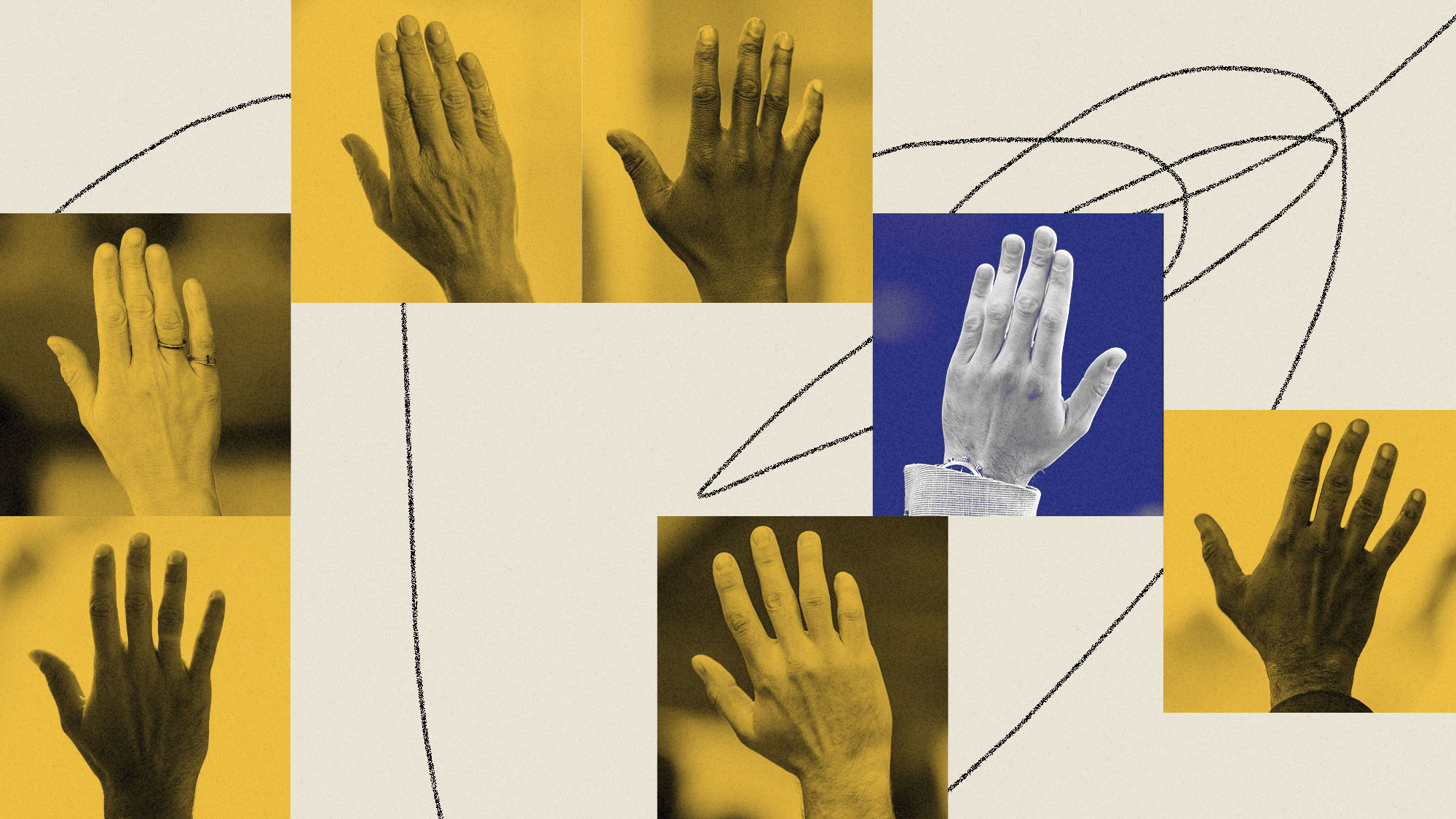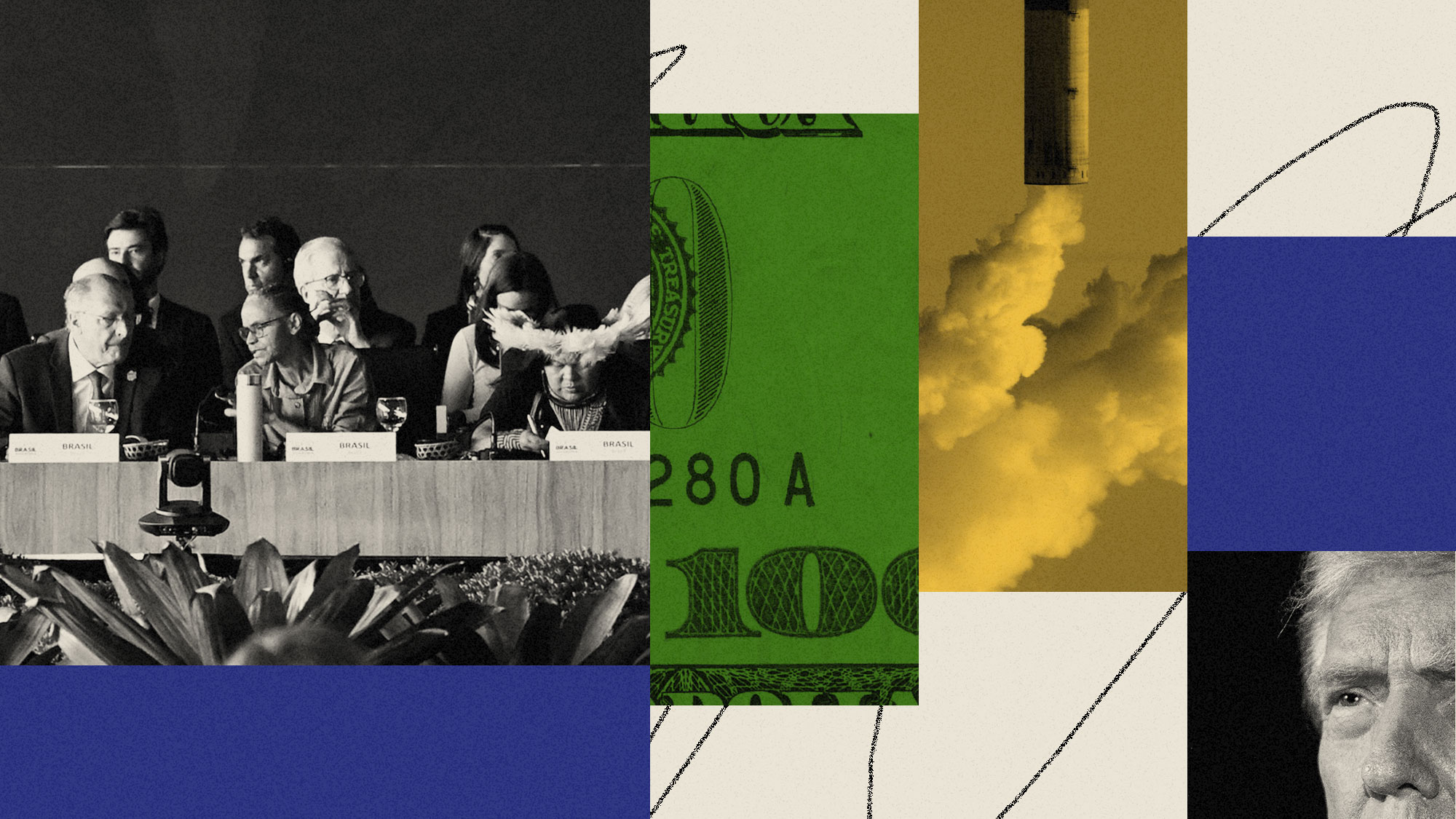Frustration over slow progress at UN climate talks has simmered this week. After hours in the equatorial sun at COP30 in Belem, Brazil, on Tuesday evening, dozens of protesters pushed past security guards and briefly occupied parts of the negotiation zonecalling, among other things, for an end to mining and logging in the Amazon.
The clash symbolized deeper tensions at the center of UN climate summits. The people demanding change are often outside the gates, while those with power inside are bound by rules that slow progress to a crawl.
UNFCCC officials said two people suffered minor injuries and that parts of the site were temporarily closed for cleaning and safety checks. The UN and local police are investigating the protests and talks resumed as scheduled on Wednesday morning.
On Instagram a group calling itself Juventude Kokama OJIK posted a video of the occupation of the Blue Zone and called it an act against isolation.
“They have created an 'exclusive' space in what has ALWAYS been indigenous territory and it degrades our dignity,” the group wrote. “The demonstration is intended to make clear that we will not accept being separated, restricted or prevented from moving on our own land. This is ancestral territory and the right to occupy this space is not negotiable.”
Tuesday's bustle stood in stark contrast to the usual proceedings of the annual conference, where delegates with lanyards swinging and phones beeping usually walk humbly through metal detectors and past espresso stands as if they were heading to an office supply trade show rather than negotiations to avert catastrophic climate collapse.
Somehow, that urgency rarely hit home, in part because the United Nations Framework Convention on Climate Change holds its annual meeting like a corporate conference, he said. Daniel Falzonsociologist at Rutgers University, whose research The report on the climate negotiations is based on dozens of interviews with negotiators and other participants from developed and developing countries at most workshops since 2016.
Under the UNFCCC, she says, success is measured by how long you stay in the room, how flawless your presentation is, how fluent you are in bureaucratic English—and how well you can pretend the world outside isn't burning.
“I'd love to go to the talks and see people take seriously the urgency and urgency of the massive changes we're seeing,” she said. “I would like them to break through the sterilized, superficial, diplomatic language and start talking about climate change for what it really is.”
For all the talk of unity, the climate summit has struggled to achieve results because the talks reflect the global inequalities they are meant to correct, Falzon said. According to her research, COP has made little progress because it continues to fail to serve the countries that contributed least to the problem but suffer the most from it.
Negotiations, she said, are dominated by well-equipped teams from rich, developed countries that can afford to be everywhere at once. Small delegations from less developed countries often cannot even attend dozens of overlapping meetings.
“Everyone is tired, but people from smaller delegations are just trying to keep up,” she said. That exhaustion, she added, shapes the negotiations themselves: Those with more power set the pace and define the terms, while others simply try to keep up.
“You can’t just pretend that all countries are equal in the negotiating space,” she said.
According to her, the imbalance lies in the organization itself. The UN climate process was designed to keep everyone at the table, not undermine it. This makes it resilient yet resistant to change, and she said her years of negotiation research shows the system values consensus and procedure over results, and the appearance of progress over actual results.
“Much of what is now called the success of the COP is the creation of new documents, new programs of work, rather than real action on climate change,” she said. After 30 years of meetings, this model offers new programs, new acronyms and new promises that keep the gears moving but rarely makes a difference on emissions, she added.
Most people involved in climate negotiations see the need for change, but Falzon said institutions are designed to perpetuate themselves.
How (not) to talk about climate
Part of the paralysis Falzon describes stems from a reluctance to speak openly about the emergency he exists to address, he said. Max Boykoffclimate communications researcher at the University of Colorado Boulder.
“Issues related to climate change were first formulated as scientific problems back in the 1980s, and this has become the dominant way of understanding a changing climate,” Boykoff said. “But it has crowded out other ways of knowing: emotional, experiential, aesthetic, or even just intuitive ways of knowing that something is wrong.”
COP experts “tend to focus on what can be measured and communicated, the outputs and outcomes that drive the negotiation itself,” he said. “The frequency of these meetings becomes ritualized to their detriment.”
A quick glance at some of the COP30 daily notices shows what Boykoff describes, with invitations to “High Level Ministerial Meeting on Multi-Level Governance” or “Launch of the Plan to Accelerate Multi-Level Governance and Launch a High Ambition Multi-Level Partnership Coalition”.
Such language, he says, reflects a culture that values precision and hierarchy over connection and clarity. It's a diplomatic synonym that signals professionalism but dulls urgency and narrows the space for creativity, emotion or thought, he added.
Boykoff said the only way to move beyond repetition rituals is to break them.
“What we really need,” he said, “is to shake it up, to create a space that allows people to think and feel and engage in new ways. Because if we keep doing the same thing year after year, we shouldn't expect different results.”
Falzon said the technocratic language of the UNFCCC reflects the dominance of negotiations by “an old world hierarchy in which rich countries set the agenda, poor countries fight to be heard, and the system continues to reproduce the conditions it is supposed to correct.
“It's not just the negotiations that are unequal,” she said. “All of this reflects the inequalities of the world that it aims to change.”










